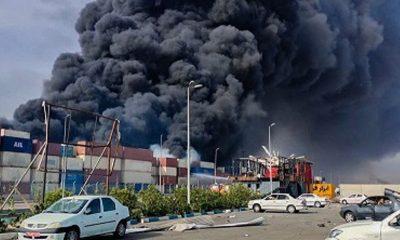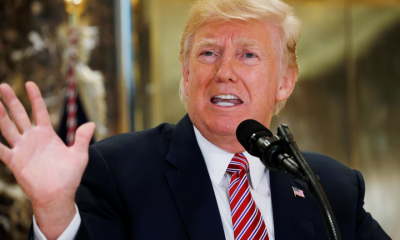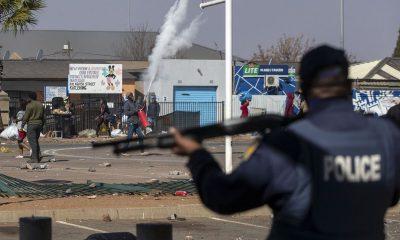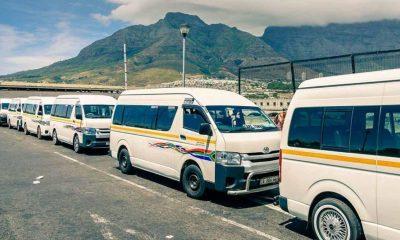411
Trump’s Refugee Offer to Afrikaners Sparks Division in South Africa
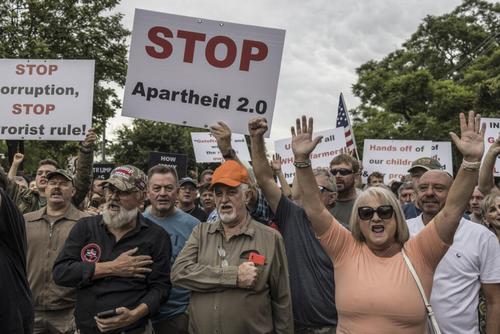
A Saturday morning at the Boeremark (Farmer’s Market) outside Pretoria paints a picturesque scene of Afrikaner life—bustling stalls selling traditional treats like koeksisters, cinnamon melkkos, and racks of khaki shirts worn by generations of boere. But just beneath the warm aroma of pancakes and cured biltong, a polarising issue is stirring deep conversations among South Africa’s Afrikaner community.
In February, former U.S. President Donald Trump made headlines after offering refugee status to white Afrikaners, claiming they face racial persecution in post-apartheid South Africa. The offer has triggered thousands of applications and reopened long-standing wounds in the nation’s racial history.
While some Afrikaners at the market quietly welcome Trump’s attention, others see it as a dangerous distortion of reality.
“As a white person and a boer, I feel like we’re being targeted. There’s reverse racism,” said Cesere Smith, a 54-year-old vendor. “There’s trouble coming.”
Smith, like many others, expresses a growing sense of insecurity in a country still navigating the complexities of its past. But not all Afrikaners agree with this narrative.
A Culture Still Thriving
Max du Preez, a veteran journalist and author, is sharply critical of what he calls a “phantom pain” among Afrikaners. He argues that fears of persecution are largely unfounded.
“Afrikaners are materially and culturally better off today than in 1994,” said du Preez. “Afrikaans is the only local language with four TV channels and a robust media presence.”
Indeed, Afrikaans festivals, literature, and even business communities continue to thrive. However, the perception of marginalisation persists for some—fueled by right-wing groups and amplified by figures like Trump and his ally, Elon Musk.
Myths of Genocide and the Search for Identity
Trump’s controversial claims of “white genocide” have been widely debunked by South African crime statistics, which show the majority of murder victims are young black men in urban areas. Yet these narratives have gained traction abroad and among a segment of Afrikaners, particularly those nostalgic for apartheid-era security.
Education reforms and economic redress measures, such as Black Economic Empowerment (BEE), are viewed by some Afrikaners as attacks on their cultural and financial survival. But experts say these measures are essential to healing the economic inequalities entrenched by decades of white privilege.
Bridging the Divide: Voices of Reconciliation
In contrast to divisive rhetoric, there are also Afrikaners who are working towards a more integrated and hopeful South Africa.
At a small Johannesburg church meeting, black and white South Africans shared stories, biltong, and a commitment to national unity.
“This victimhood narrative makes me sick,” said Pastor Trevor Ntlhola, a former anti-apartheid activist. “The true victims were millions of black South Africans.”
The Betereinders movement, led by Afrikaners Schalk van Heerden and Johan Erasmus, promotes the idea of healing through integration rather than separation.
“Our solution is not isolation—it’s building a shared future,” said Erasmus. “People have been betting against South Africa for 30 years, but we are still here.”
A Nation at a Crossroads
President Trump’s intervention has clearly touched a nerve—offering a platform to fringe voices but also forcing a deeper examination of race, privilege, and national identity in South Africa.
While some Afrikaners feel increasingly alienated, others believe their culture can flourish within a united, post-apartheid society. The path forward will depend on whose narrative prevails.
As South Africa prepares for its next chapter, one thing is certain: the conversation about who belongs, who benefits, and who feels threatened is far from over.
{Source: IOL}
Follow Joburg ETC on Facebook, Twitter , TikTok and Instagram
For more News in Johannesburg, visit joburgetc.com

